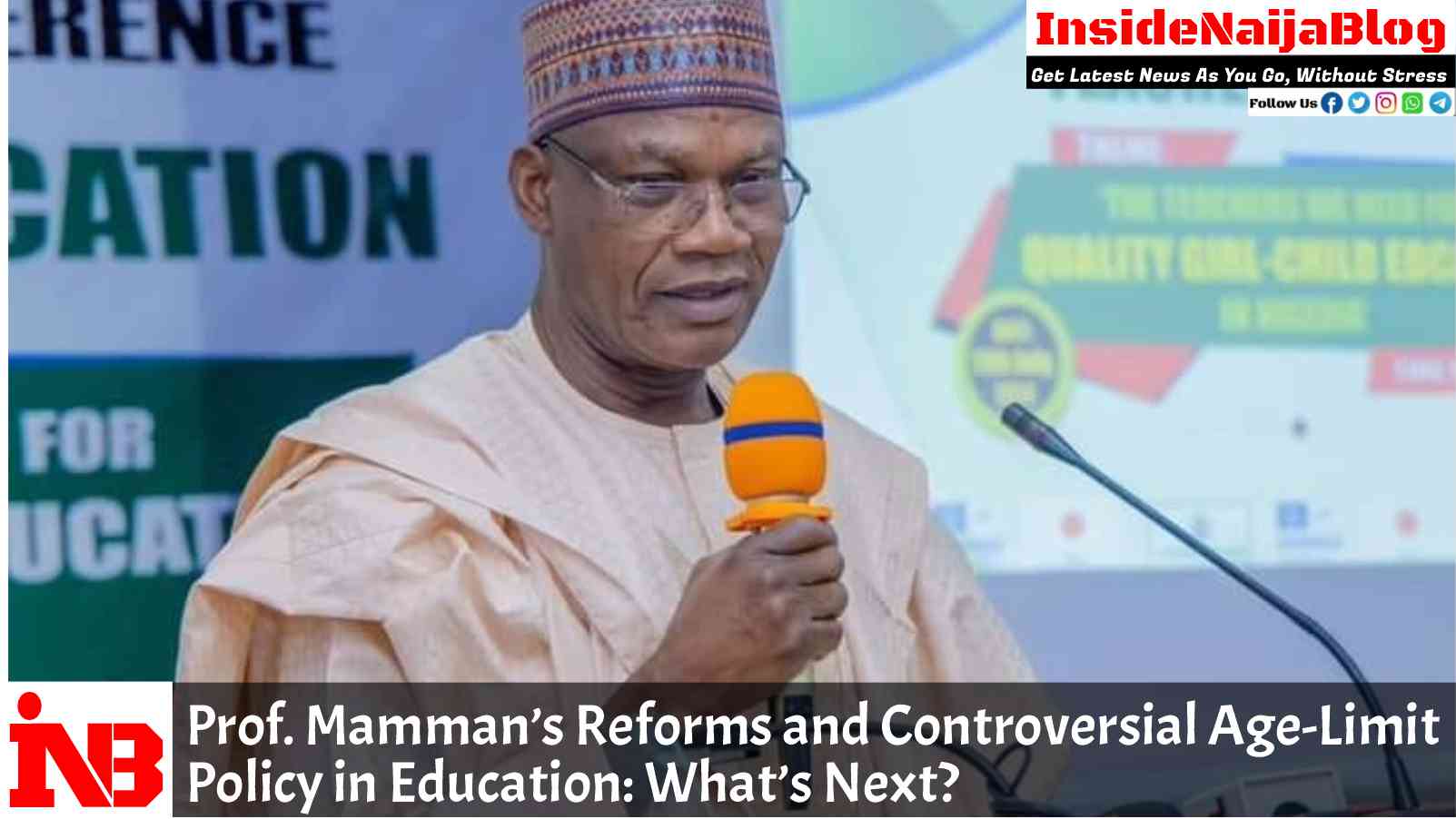When Prof. Tahir Mamman took office as Nigeria’s Minister of Education on August 21, 2023, hopes were high that he would bring the needed transformation to the nation’s struggling education sector. A seasoned academic and former Vice Chancellor of Baze University, Mamman was seen as the right leader to drive change, particularly as the nation faced pressing issues, such as the alarming number of out-of-school children (OSC), quality gaps in education, and rising insecurity in schools.
Reforms and Achievements
Prof. Mamman began his tenure with a proactive approach, engaging stakeholders in Nigeria’s education sector and calling for unity in tackling educational challenges. To address the out-of-school crisis, where Nigeria holds one of the highest rates globally with 19.7 million OSC, his ministry initiated literacy programs. Within a few months, the ministry enrolled two million Almajiri children into Basic and Arabic Literacy Programmes, aiming to curb the out-of-school problem. He also rolled out plans to embed skill development and vocational training within the curriculum at both primary and secondary levels, intending to better equip students for productive lives beyond school.
Efforts extended to improving teacher and staff competencies, with over 70,000 individuals receiving professional development. Moreover, Mamman tackled systemic issues, like certificate forgery, forming an Inter-Ministerial Investigative Committee to combat the presence of counterfeit certificates. Recognizing the energy challenges faced by tertiary institutions, he secured approval from President Tinubu to power universities through Compressed Natural Gas (CNG), offering a more sustainable solution to high electricity costs.
The Controversial Age-Limit Policy
Despite his achievements, Prof. Mamman’s tenure saw significant backlash following the introduction of a new age-limit policy. Under this rule, pupils under 11 would not be allowed to sit for the National Common Entrance Examination for federal unity schools, effective from 2024. Extending further, he announced that, beginning in 2025, students below 18 years old would be ineligible for the Senior Secondary Certificate Examination (SSCE), and thus barred from higher education admissions. Citing crises attributed to underage students, he sought to implement age restrictions across all educational stages.
The policy faced immediate opposition from parents, educators, and legal professionals who argued it unfairly penalized young, high-achieving students. At a 2024 JAMB policy meeting, stakeholders voiced disapproval, with loud objections challenging the rule. Mamman later modified the policy, postponing full implementation to the 2025 academic year but kept the age restrictions in place. This did not quell dissent, as public outcry grew stronger. Notably, 15-year-old student Chinaemere Opara recently filed a lawsuit against the Federal Ministry of Education, JAMB, and the National Universities Commission (NUC), contending that the age cap infringes on his right to access higher education.
The Future of the Age-Limit Policy
With Mamman’s recent dismissal, the future of the age-limit policy is uncertain. Public sentiment suggests a pushback, with many urging the new minister to repeal or at least revise it. Should the next Minister of Education choose to implement Mamman’s age restrictions, they will likely face both public scrutiny and legal challenges, as seen with the ongoing case filed by Opara.
The stakes for Nigeria’s educational sector are high. While Mamman’s policies have set a course toward structural reform, his age-limit rule remains a contentious issue that could shape the education ministry’s next steps. Whether the incoming minister will uphold this policy or take a new direction will significantly impact the nation’s educational landscape, affecting students, parents, and educators alike.




